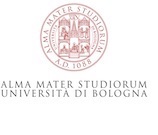2022 Edition Participants

Elif Nur Aybas
Master's student in Sociology, Boğaziçi University, İstanbulI received my BA from Political Science and International Relations Department in Boğaziçi University, İstanbul. Currently I attend sociology masters program in the same university. I am interested in disability studies, science and technology studies, biopolitics, population policies and labour. In my further studies I plan to focus on the ways technology transformed the labour spetializing on the disabled people.

Cheikh Ba
Lecturer at the Institute of Territorial Governance and Local Development, University of Cheikh Anta Diop in Dakar, SenegalCheikh BA is a lecturer at the Institute of Territorial Governance and Local Development, University of Cheikh Anta Diop in Dakar, Senegal. His research interests are situated at the intersection of environmental geography, political ecology, governmentality studies, and Science and Technology Studies. He has conducted extensive research on the governance of environmental crises and climate risks in relation to Senegal River basin inundations in Senegal, analysing the role of different forms of local and situated environmental knowledges in the emergence of endogenous resilience practices. Cheikh Ba also continues to work as a researcher at the Institute for Social and Economic Research (WiSER) at the University of the Witwatersrand (Johannesburg, South Africa). He is a member of Sahel/Sahara/Mediterrean Cluster of Regions 2050 project, led by Achille Mbembe, where he focuses on the ecology of knowledges on Sahelian waterbodies. He is interested in local notions of environmental justice, decolonisation of environmental knowledge and in the ecological history of territorial governance in West Africa.

Raka Banerjee
Junior Fellow at Nehru Memorial Museum and Library, New DelhiRaka Banerjee is an incoming (August 2022) Junior Fellow at Nehru Memorial Museum and Library, New Delhi. She earned her PhD in Women’s Studies from the Advanced Centre for Women’s Studies, Tata Institute of Social Sciences, Mumbai, in December 2021. Her doctoral thesis, titled ‘Adrift in the Bay, at Home in the Island: Post-Partition ‘Settler Women’ in Neil Island, Bay of Bengal’, is an interdisciplinary study incorporating Island Studies and Partition Studies, through the lens of gender, to explore the identity-making of Bengali settler women in the Andaman Islands. She is a recipient of the JIWS (Journal of International Women’s Studies) Fellowship (2022-23); Jawaharlal Nehru Scholarship for Doctoral Studies (2019-20); Ministry of Culture Junior Fellowship (2016-17); and participated as Student Fellow at the 2020 Asian Graduate Student Fellowship, Asia Research Institute, National University of Singapore. She writes on gender, Island Studies, Bengal Partition and the Bay of Bengal region.

Ilaria Bonvicini
Art historianIlaria Bonvicini is an art historian. She holds a Bachelor degree in Design and Art and a Master degree in Visual arts. Her research interests include critical spatial practices, territorial stigmatization and violent practices of urban exclusion. She is also interested in how logics of securitization transform spaces and rights, challenging concepts of permanence and permeability between bodies, territories, cities and ecosystems.

Stephen N. Borunda
Chancellor’s Fellow/PhD student in film and media studies at UC Santa BarbaraStephen N. Borunda is a Chancellor’s Fellow/PhD student in film and media studies at UC Santa Barbara. His research interests include the roles of deserts as “media laboratories” across the Americas, Latinx/Latin American film and media studies, media and the environment, and the intersection of media infrastructures and coloniality. His work has been published in Media+Environment, global-e, Film Matters, The Santiago Times, and Media Fields (upcoming). He was the recipient of the 2022 Essay Award for the SCMS “Media and the Environment Scholarly Interest Group” for his writing on activist media in New Mexico in response to nuclear colonialism. He was a teacher in Baltimore via Teach for America prior to returning to graduate school and his filmmaking (Boost, 2018) has been screened at the Festival Internacional de Cine de Valdivia. He is the coordinating editor of the cutting-edge journal Media+Environment.
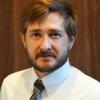
Nico Buitendag
Post-doctoral fellow at the Faculty of Law, North-West University in South AfricaBelieving that current global questions ask for broad structural responses, Dr Nico Buitendag conducts transdisciplinary theoretical research that bridges law, politics, sociology, historiography and philosophy. Deeply influenced by autopoietic systems theory, his work attempts to project the theory further along its radical and anti-hierarchical horizon. He is currently a post-doctoral fellow at the Faculty of Law, North-West University in South Africa, and holds degrees from Pretoria, Leiden and Kyoto.

Francesco Casales
PhD in Contemporary History, Universities of Pavia and Paris 8-Vincennes/Saint DenisI graduated in Historical and Oriental Sciences - Global Cultures at the University of Bologna in July 2018 with a thesis on the representation of the "meticcio problem" in literature and cinema of the Fascist period. In May 2022 I obtained a PhD in Contemporary History (XXXIV cycle) at the Universities of Pavia and Paris 8-Vincennes/Saint Denis. My PhD research project aimed to investigate the history of Italian colonial novel between 1913 and 1943 with a particular focus on the production chain of novels as commodities and on their formal and ideological contents. My articles and reviews have been published on "Studi Culturali", "Modern Italy", "Zapruder", “Laboratoire Italien” and “Revue Alarmer”. I am part of the editorial board of the scientific journals “Suite Française” and “Zapruder”.

Michael Cavuto
Doctoral student, English Department, Duke UniversityMichael Cavuto is a doctoral student in the English Department at Duke University, as well as a poet and publisher. His work engages modern and contemporary poetics in the American hemisphere with an interest in the ways that transcultural links generate decolonial possibilities and reconfigure our senses of history and memory. Country Poems, his first book of poetry, was published by Knife Fork Book, Toronto in 2020. He is a founding editor of the Slow Poetry in America Newsletter and auric press.

Caio Dayrell Santos
Communication scientist and journalist graduated from the Federal University of Minas Gerais (UFMG)I’m a communication scientist and journalist graduated from the Federal University of Minas Gerais (UFMG) with an exchange period at the Universidad Autónoma del Estado de México and a master's degree in Communication and Culture from the Federal University of Rio de Janeiro (UFRJ). Today I am a doctoral student in UFMG, composing the MARGEM - Research Group on Democracy and Justice and developing research on public grief around environmental catastrophes. I also work as a photographer, videomaker, and journalist, having experience reporting popular demonstrations, human rights, and social movements in Latin America. My main themes of interest are posthumanism, public grief, environmental catastrophes, image theory, the relationship between politics and aesthetics, narratives of suffering, precarious lives, and postcolonial violence.
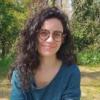
Isabella D’Angelo
PhD student in Global histories, cultures and politics, University of BolognaMy name is Isabella D’Angelo, and I am a PhD student in “Global histories, cultures and politics” at University of Bologna. Before starting the PhD, I obtained a BA and a MA in Philosophy at “La Sapienza” University in Rome and, after graduating, I have been awarded an advance training grant abroad that allowed me to do a visiting research period in Utrecht University in 2019. My current PhD project in political philosophy deals with the question of political spaces from a postcolonial perspective. In more detail, I map how postcolonial studies have been thinking, and rethinking, political spaces: in particular, I concentrate on both a pars destruens, where postcolonial studies challenge and contest the colonialist construction and representation of political spaces, and a pars construens where, on the other hand, postcolonialism elaborates new concepts and images to think of political spaces otherwise.

Zaria Sawdijah El-Fil
dramaturg, community organizer, and Ph.D. student in the Department of History, University of ChicagoZaria Sawdijah El-Fil is a dramaturg, community organizer, and Ph.D. student in the Department of History at the University of Chicago. As a Brenda and Earl Shapiro Scholar, Zaria specializes in Atlantic slavery, early modern capitalism, political theory, and maritime migration. Her current research investigates how both oceans and rivers have been vectors through which global modernity was actualized. Zaria plans to write a dissertation that looks outside of strictly land-based epistemologies to engage “the sea” as a polymorphous site of transformation, birth, radicalism, and domination. Consistent with her commitment to public history, she lends her talents to dramaturgical work, historical exhibitions, and curriculum building. Zaria holds BAs in Psychology, African and African Diaspora Studies, and Humanities from The University of Texas at Austin.

Hailey Elszasz
PhD candidate in Politics, University of VirginiaHayley is a PhD candidate in Politics at the University of Virginia, where she’s writing her dissertation about climate change organizing in the Bay Area of California. Her research centers communities in the Peninsula that are early actors on climate. Hayley’s research explores how community groups, activists, and city governments work together to pass and implement climate policies like electrification and gas bans. Her primary academic interests include environmental politics, social movement organizing, and fieldwork ethics.

Scott Erich
PhD candidate, Anthropology Program at the Graduate Center, City University of New York (CUNY).Scott is a PhD candidate in the Anthropology Program at the Graduate Center, City University of New York (CUNY). His dissertation project, titled “Taming the Sea: Property, Rights, and the Extractive Seascape of Southeastern Arabia” is an ethnographic and historical study of how oceanic “territory” and marine natural resources have been governed off the shores of Oman and the U.A.E from the mid-nineteenth century to the present. Most recently, Scott was a visiting scholar at the American University of Sharjah, and was previously based in Muscat, Oman as a Fellow with the Institute of Current World Affairs. He is an adjunct lecturer in the Department of Sociology & Anthropology at Baruch College.

Mariachiara Ficarelli
PhD student, Department of Anthropology and Critical Media Practice, Harvard UniversityMariachiara Ficarelli is a PhD student in the department of Anthropology and Critical Media Practice at Harvard University. She researches old and new energy infrastructures, histories of labour, and visions of futurity in Italy and the Mediterranean. Her work sits in the midst of political ecology, political economy, and media studies

Elena Fusco
PhD student in Global History, University of BolognaI am a first year PhD student in Global History at the University of Bologna. My main research interests concern the history of modern political concepts. My current doctoral research addresses the crucial role of black intellectual Anna Julia Cooper’s (1868-1964) political theory and activism, both in giving birth to black feminist thought and in articulating an anticolonial critique of the West in the US between the abolition of slavery and the World War II. I expect to show how her extremly original claim for politicization of the experience of the Afroamerican women, entangled with the analysis on the inseparability of violence and modern civilization in western democracies, place Anna Julia Cooper in a quite unique position in the construction of a global history of political concepts.

Thaís Gambôa Cavalcanti Freire
Graduate, Law - Universidade Federal de PernambucoGraduate, Law - Universidade Federal de Pernambuco. Intern/Trainee at Nunes Costa Advocacia. Volunteer and President of the AFS Committee in Recife. Founder and Coordinator of Projeto Civilis.

Katerina Genidogan
Research associate and doctoral candidate, Institute of Philosophy and Sciences of Art, Leuphana University, LüneburgMy name is Katerina Genidogan, and I’m a research associate and doctoral candidate within the Research Training Group “Cultures of Critique” of the Institute of Philosophy and Sciences of Art at Leuphana University Lüneburg. My research lies at the intersection of postcolonial, black, environmental and critical development studies, and focuses on the relationship between the reconfiguaration of racial difference since the mid nineteenth century, the environment, and different modes of governance. Part of my research process has been extensive fieldwork in Ghana and Nigeria, particularly in regards to the ongoing oil crisis in Niger Delta. Previously I completed a Graduate Diploma in Contemporary Art History and a MRes in Curatorial/Knowledge within the Visual Cultures Department at Goldsmiths University of London. Recent publications of mine include “Race Re(con)figurations through Speculative and the Environmental Futurity” (2021) and “The Cultural Logic of Green Capitalism: A New Coalition of Geo- and Chronopolitics” (2022).

Francesca Goletti
Ph.D. candidate in in Social Sciences at the University of GenoaI am an anthropologist. From January 2022, I have been reading a doctorate in Social Sciences at the University of Genoa, where I also live. My research project is titled "The Mediterranean Sea: between migratory movements and climate change, from the desert to the ports". My objective is to investigate the different types of routes and trajectories across the Mediterranean Sea from the Genoa’s harbour to Gabès, in Tunisia and how the sea affected them. At the mean time I will continue my research with the project Ermenautica Saperi in Rotta. Sailing on board the Raj and experiencing sea, wind and clouds, we try to understand whether and how the fluidity and unpredictability of the sea can be opposed to the rigidity of categorizations, schemes, and hierarchies. How do we care for each other in that context?

Anderson Henrique Gonçalves dos Santos
Graduate Student in International Relations at Federal University of BahiaI was born and raised in Cachoeira, Recôncavo da Bahia. After completing my master’s studies in International Relations at Federal University of Bahia, I currently conduct my pre-doctoral research. I am interested on global studies beyond eurocentrism, global accumulation and racial violence, transnationalism, maroon communities, agencies and political connections created in the Black Atlantic - the bosom of modernity.

Anna Guerini
Ph.D. in Global Histories, Cultures, and Politics, University of BolognaI earned my Ph.D. in Global Histories, Cultures, and Politics from the University of Bologna, with a research work devoted to the social and political functions of women as the core of Tocqueville and Beaumont's conceptualization of democracy. A significant part of the research was devoted to the investigation of the hierarchies among white, black, colonized, and working-class women and their identification with the social and political disorder in the 19th century. In my master's dissertation, I examined the political thought of Frantz Fanon, focusing on the racist sociogenesis of colonial society and practices of resistance. My research interests include modern and contemporary feminist political theory, analyzed with the tools of the global history of political concepts; I then focus on the conceptual strategies of social movements and their impact on government processes.
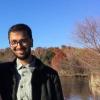
Archit Guha
PhD student in the History Department at Duke UniversityArchit Guha is a PhD student in the History Department at Duke University. Archit’s broad areas of interest span Modern South Asia and the Indian Ocean Region, exploring how the environment, science, imperialism, capital(ism), and culture intersect in the context of natural disasters and uncertainties around climate and weather, particularly in coastal spaces. These themes of inquiry animate questions around scale, risk, and responses in relation to perceptions of disaster, which will inform his dissertation research.

Valeria Guzmán Verri
Visiting Researcher at Université Sorbonne Nouvelle, París 3Valeria Guzmán Verri teaches at the School of Architecture at the University of Costa Rica, with Visiting Academic positions at Southeast University, Nanjing, and the University of Technology in Kingston, Jamaica. She holds a Masters and Ph.D. in Histories and Theories of Architecture from the Architectural Association School of Architecture, London and a Diploma of Architecture from the University of Costa Rica. Her latest publication Gifting Architecture: China and the National Stadium in Costa Rica, 2007–11 examines architecture as gift and the burden of reciprocity in the context of China’s diplomatic drive in the Global South. Currently she is Visiting Researcher at Université Sorbonne Nouvelle, París 3.

Masha Hassan
Teaching Tutor for Hindi Language at the Department of Anthropology, Religions and Oriental Civilizations, University of Bologna, ItalyI am working as a Teaching Tutor for Hindi Language at the Department of Anthropology, Religions and Oriental Civilizations, University of Bologna, Italy. I graduated from the University of Bologna, and for my master's thesis I worked on the Assamese Muslims in India, focusing on how colonial historiography is translated into contemporary languages of exclusion. During my University days I worked as an interpreter/cultural mediator for the political asylum seekers at the home office in Bologna translating from Urdu-Punjabi and Hindi to Italian. My current research interest lies in scrutinizing the ‘coloured’ nature of the socio-legal language of migrant smuggling by engaging in the normative inquiry of migrant smugglers and delineating the shifting historical paradigm on the representation of migrant smugglers at the French-Italian borders, from anti-fascist heroes to anti-social criminals.

Reina Henderson
PhD student in the History department at DukeI am a third-year PhD student in the History department at Duke. My research encompasses the Caribbean, Mediterranean, and Atlantic Worlds and explores themes of empire, race, law and politics, and war. My dissertation, tentatively titled "At the Edge of New Worlds: The Clash of Empire, Race, and Revolution in the End of Atlantic Slavery, 1756-1868," is centered on free and enslaved people of African descent navigating the legal and military traffic of the Greater Atlantic seascape to examine the vulnerability of imperial structures via their experiences. Along with my doctorate, I am working on certificates in African and African American Studies and Latin American & Caribbean Studies. I have also done public history work with National History Day and my creation of the website "The Historian's Theater" which offers reviews of historical films for their contributions to film and knowledge of history.

Mala Hernawati
PhD Student in English Literature, School of English, Film, Theatre, Media and Communication, and Art History (SEFTMCAH), Victoria University of Wellington, New ZealandMala is a junior teaching staff in the English Department, Universitas Gadjah Mada, Indonesia. Currently, she is taking study leave and is a first-year PhD student in English Literature at the School of English, Film, Theatre, Media and Communication, and Art History (SEFTMCAH), Victoria University of Wellington, New Zealand. Her research interests include gender and ecological criticism in literature, film, and folklore. However, her fondness for the sea has built her special interest in exploring the emerging humanistic field called oceanic studies. For her doctoral project, she examines the oceanic literary imaginations in contemporary Indonesian and New Zealand literature, which she believes will uncover the oceanic ecological realities and the maritime history of colonialism in the South.

Ian Jayne
Ph.D. student in the Department of English at the University of VirginiaI am a rising third-year Ph.D. student in the Department of English at the University of Virginia. Before coming to UVa, I earned my M.A. in English at Georgetown University. My research interests include global anglophone literatures of the twentieth and twenty-first centuries, postcolonial literature and theory, and queer and trans theories. At the 2022 Summer School in Global Studies and Critical Theory, I am interested in exploring how oceanic studies and “the sea” provide a capacious framework for thinking through my tentative dissertation project: a global examination of “queer freedom” over the last century, across a wide range of geographies and forms.

Naima Karczmar
PhD student in English and Critical Theory at UC BerkeleyNaima Karczmar is a PhD student in English and Critical Theory at UC Berkeley, where she works on racial epistemologies of the eighteenth and nineteenth centuries. Her research approaches racial epistemology from a comparative transatlantic perspective, taking as its starting point the question of how race is rendered meaningful, perceptible, and operative as a mode of categorization and domination. She serves on the editorial board for Qui Parle: Critical Humanities and Social Sciences and Ki, where she is managing editor. She has been a finalist for the Glimmer Train Short Story Award and the Disquiet International Literary Prize in nonfiction. Her creative work has appeared in The Michigan Quarterly Review, Autofocus, The Iowa Review, and Gramma Poetry.

Lucas Lopes
Ph.D. candidate in Romance Studies at Duke UniversityI am a Ph.D. candidate in Romance Studies at Duke University. I received my B.A. in Portuguese from the State University of Campinas (Unicamp, Brazil) and my M.A. in Literary Theory and Criticism also from Unicamp. In 2019, I was a Visiting Research fellow in the Department of English at the University of Victoria in British Columbia, Canada through a scholarship from the Emerging Leaders of the Americas program. I have previously specialized in William Faulkner’s portrayal of the American South, with increasing exploration of linkages to the Global South. My current research explores issues of temporality in mid-twentieth century Brazilian and Caribbean novels and the way in which their formal innovations challenge the dichotomy between rural and urban, and disclose a particular perspective on the understanding of modernity. My academic interests include Modernism, Marxism, the Frankfurt School, and Latin American intellectual history.

Ivana Esther Martinez
PhD student in Spanish; Interdisciplinary Doctoral Fellow in Caribbean Literatures, Arts, & Cultures at the University of Virginia (UVA)Ivana completed their BA in Spanish, minor in Film, and certificate in Leadership Studies at Hollins University in Roanoke, VA. Entering her second year in the Spanish PhD at UVA, they are interested in the transatlantic representations, imaginaries, and silences of Black Female subjects in the Luso-Hispanic colonial archive. She is particularly keen on exploring the Early Modern tides of race, gender, empire, resistance, and peoplehood, that link the cultural currents of the Circum-Caribbean and the Mediterranean today.

María Paula Molano
Ph.D. student in the Romance Studies department at Duke UniversityI am María Paula Molano, a Ph.D. student in the Romance Studies department at Duke University. I research the aesthetics of violence in film and photography in Latin America. My main concerns are the interactions and possible solidarity between humans and nonhumans in contexts of repression and armed conflicts. In my work, I incorporate non-anthropocentric epistemologies outside the global north, multisensory media, theories of corporeality, and feminism. I hold a B.A. and M.A. in Literature from Universidad de los Andes (Bogotá, Colombia). Additional to academic research, I am a photographer.

William Morgan
Doctoral researcher in the Department of Rhetoric and the Berkeley Center for New Media at the University of California, BerkeleyWilliam Morgan is a doctoral researcher in the Department of Rhetoric and the Berkeley Center for New Media at the University of California, Berkeley, and a member of the editorial board of Qui Parle. His research focuses on cybernetics, international relations and the philosophy of machines, specifically how artificial intelligence and emerging biotechnologies augment modes of perception (financial, geopolitical and environmental). William's research considers questions concerning how the world is transformed when it is increasingly rendered in a digital format, such as how the digitalization of political stimuli effect changes in international relations and interstate communications. In pursuing these questions, William makes use of the intellectual history of cybernetics alongside contemporary political theory and new media methods and scholarship.

Kelvin Ng
PhD candidate at the Department of History at Yale UniversityKelvin Ng (he/him) is a PhD candidate at the Department of History at Yale University. He is also pursuing a graduate certificate in Women's, Gender, and Sexuality Studies, and a graduate certificate in Translation Studies. His research work brings together the social history of migration and the intellectual history of internationalism in four linked Indian Ocean spaces: British India, Republican China, British Malaya, and the Dutch East Indies. His dissertation, "Vernacular Equality: Contesting 'Freedom' in the Indian Ocean, c. 1918-1939," examines three intertwined strands of anti-imperial thought—communist internationalism, pan-Islamism, and anti-caste radicalism—in relation to an oceanic political economy of unfree labor and uneven development. His research interests more broadly include political economy, intellectual history, critical theory, and oceanic histories. His published academic work has appeared in Comparative Studies of South Asia, Africa and the Middle East, South Asian History and Culture, and South Asia.

Silvester Schlebruegge
PhD candidate at the University of WarwickSilvester Schlebruegge is a PhD candidate at the University of Warwick. With a background in International Relations, Psychosocial Studies and Anthropology, Silvester’s research interests lie in aesthetics, borders, race, resistance, and visual politics. His PhD research project investigates these various concepts at play in the larger context of the so-called UK ‘Channel migrant crisis’.

William Shivers
Ph.D student in the Constructed Environment at UVA’s School of ArchitectureWilliam is a Ph.D student in the Constructed Environment at UVA’s School of Architecture, where he is currently researching the intersection of climate and cultural resilience in American peripheral landscapes. His work positions a new “cultural reparation ecology” to critique and expand how nature-based solutions and climate adaptation in the US are valued and how they can address key issues of environmental, social, and cultural exploitation and injustice. This research focuses on mass tree planting strategies and how a culturally inclusive approach can work towards a pluralistic national adaptation that champions cultural and ecological heterogeneity. Trained as a landscape architect, William received his Master’s in Landscape Architecture with Distinction from Harvard University’s Graduate School of Design and his Bachelor’s from Louisiana State University. William’s work and research has been presented, published, and awarded internationally by groups including the American Society of Landscape Architects, Places Journal, Landscape Architecture Frontiers, and Institute for Advanced Architecture Catalonia.
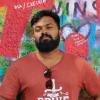
Nidheesh Suresh
Doctoral Candidate Department of Humanities and Social Sciences, Indian Institute of Technology Madras, Chennai, IndiaI am a doctoral candidate at the Department of Humanities and Social Sciences at the Indian Institute of Technology (IIT) Madras Chennai. My doctoral research, via spatial analytics, offers an alternate account of the coast as a fluid space with situated histories that complicate the binaries: land and sea, capitalist and subaltern, trawler, vessel and ‘craft-based smaller vessels. My spatial analytics follow how fishers' fluid practices and lifeways of fishing, worship, dwelling and navigating land and water in order to complicate simplistic assumptions.
I have a Bachelor’s degree in English literature from the University of Kerala, India, a Master’s degree in English and Comparative Literature from Pondicherry University, India and an MPhil in Comparative Literature from the University of Hyderabad, India. I have also completed an International Course on Legal Pluralism, Organized by the Commission on Legal Pluralism in collaboration with the Department of Humanities and Social Sciences, IIT, Bombay.

Nastia Volynova
Researcher and writer, resident at Garage Studios and Artist ResidenciesNastia Volynova is an interdisciplinary researcher and writer with a background in art history. She explores bodies of water, politics of violence and narrative production. Her current project investigates the history of hydropower infrastructure in Soviet Russia. Nastia is a member of residues of wetness, a research and art group that develops a digital archive of aquatic entanglements, fluidities and discontinuities. Nastia holds an MA in Contemporary Art Theory from Goldsmiths, University of London. Currently, Nastia is a resident at Garage Studios and Artist Residencies.

Xinyi Zhou
Graduate student, Historical and Oriental Studies - Curriculum "Global Cultures", University of BolognaHailing from the business world, I ventured into academia with decade-long passion for history and humanities, and recently honored my commitment with laurea in History and Oriental Studies (curriculum Global Cultures) from University of Bologna. My research interests concern the global history during the interwar period, transcultural critiques of modernity at the turn of the last century and human experience in modernity in general. Long being my spiritual home, the Sea now is nurturing all sorts of innovations in humanities, how can I possibly miss it?


